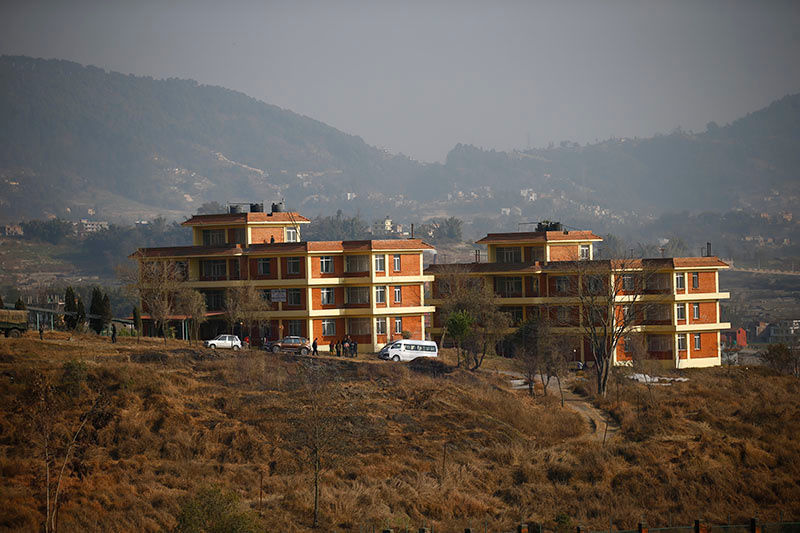‘Preparation to quarantine evacuees complete’
Kathmandu, February 11
Minister of Health and Population Bhanubhakta Dhakal today said preparations to quarantine Nepalis to be evacuated from Hubei province, the epicentre of coronavirus, have been completed.
Informing the Parliamentary Education and Health Committee today, minister Dhakal said 199 beds have been readied in Nepal Electricity Authority Training Centre, Bhaktapur. “Minister Dhakal said 25 beds have been kept for females in a different block,” said Gagan Thapa, one of the members of the committee.
Though the health minister claimed that preparations have been completed, health ministry is yet to impart training to the crew members of Nepal Airlines flight.
“The training will be conducted tomorrow afternoon on the use of personal protective equipment,” said Deepu Raj Jwarchan, Senior Captain and director of Flight Operation Department at Nepal Airlines Corporation. The airlines has also kept three members of cabin crew stand by in view of possible emergency.
According to NAC, the plane to bring back Nepalis home will take off from Kathmandu on Saturday in between 12 noon and 1pm. “The plane will tentatively return at midnight. The Nepalis will be taken to the quarantine centre from Tribhuvan International Airport in five buses,” said a source.
The health ministry is yet to impart training to the bus and ambulance drivers. “They will be trained on infection prevention safety,” said Dr Bibek Kumar Lal, director at Epidemiology and Disease Control Division, Department of Health Services.
Preparations at NEA Centre,Bhaktapur are yet to complete.
“Fencing of the compound is yet to complete. Beds are being arranged,” said Keshav Raj Oli, deputy director at NEA Training Centre.
“Arrangements are being made to keep three persons in a single room. There also are halls with six beds,” said a source in the condition of anonymity. Health experts, however, say persons in a quarantine zone should not be kept in close contact.
“It is safe to keep one individual in a single room as there is risk of transmission of the disease to other evacuees. If possible, each person should be given a separate room,” said Dr Baburam Marasini, former director at EDCD.
“The government should declare the quarantine zone as restricted area. It should not deploy army there. If a member of Nepali Army contracts the disease s/he is likely to transmit it to other members as they live together in barrack,” said Dr Marasini.
“There should be risk categorisation. At least one meter distance should be maintained among the individuals,” said Dr Lal.
At least 180 Nepalis, 177 students and three children have applied to return home after the Nepali Embassy in China requested to submit applications to those who wished to be evacuated. They had submitted applications on February 2.






